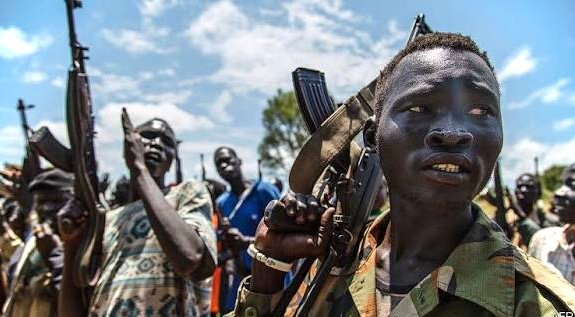The United Nations has issued a stark warning that South Sudan risks plunging back into full-scale conflict unless urgent international measures are taken to restore peace and accountability. The alert came from the UN Commission on Human Rights in South Sudan, which told the General Assembly that mounting armed clashes, political detentions, and systematic human rights abuses are once again pushing the country toward civil war.
Commissioner Barney Afako cautioned that the fragile political transition is “in jeopardy,” noting that the ceasefire is collapsing, political repression is deepening, and key provisions of the 2018 Revitalized Peace Agreement are being “systematically violated.” He also accused government forces of conducting aerial bombardments in civilian areas, a pattern reminiscent of the brutal tactics used during the country’s 2013–2018 civil conflict.
The warning follows the detention and treason charges against former First Vice President Riek Machar, whose supporters have been blamed for deadly attacks on government forces in Upper Nile State earlier this year. Machar’s long-standing rivalry with President Salva Kiir continues to undermine the unity government formed in 2018 under a shaky power-sharing deal.
Since fighting flared in March, more than 370,000 people have been displaced internally, while millions more have sought refuge across borders. Nearly 2.6 million South Sudanese remain displaced, and another 600,000 refugees—mostly from neighboring Sudan—are currently within its borders.
Commission Chair Yasmin Sooka condemned the deteriorating situation, describing the violence as “a war on the people of South Sudan.” She said civilians are being bombed, women raped, and children forcibly recruited into armed groups. “The suffering of South Sudan’s people is not collateral damage — it is the direct consequence of political failure,” Sooka told delegates.
Adding to the crisis, Commissioner Carlos Castresana Fernández linked the resurgence of violence to entrenched corruption, accusing political elites of looting the nation’s oil wealth while public institutions collapse. “Billions in oil revenues have been siphoned off while the population starves,” he said. “Corruption is not a side effect of the conflict — it is one of its engines.”
The commission urged the UN, African Union, and regional partners to intensify diplomatic pressure, hold perpetrators accountable, and accelerate the creation of the long-delayed Hybrid Court for South Sudan. The body also called for stronger protection of civilians and reforms to end the abuse of detention powers by security agencies.
“Peace will not come through handshakes or hollow promises,” Sooka warned. “It requires justice, accountability, and the rebuilding of institutions that serve the people, not those in power. The time for expressions of concern is over — concrete, coordinated action must begin now.”
With political tensions mounting and violence spreading, observers fear South Sudan may once again descend into a devastating civil war, threatening not only its fragile unity government but also regional stability across East Africa.
NNPC Turns to Private Investors to Revive Nigeria’s Long-Idle Refineries and End Fuel Imports
Source:Africa Publicity








